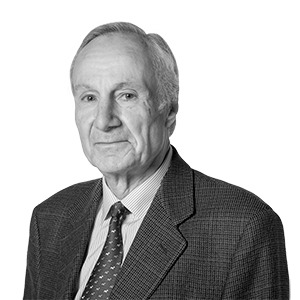

In recent months, several individuals have played an important role in global geopolitics, having been very present in events we have experienced or even witnessed. For a few years now, Putin; for a few months now, Trump and the billionaire Musk; for a few days now, Pope Francis; and, this week, the new Pope Leo XIV. I speak of people because current information distribution systems mean that news reaches us more through them than through stories. I take this opportunity to emphasize once again that we are experiencing a radical change in our history, and I want to emphasize that these changes will mean revising the meaning of a significant number of words.
1. Freedom, inequality and regulation. One of the words that marked the beginning of modernity was the increase in freedom thanks to the growth of a series of personal rights, both economic and political, guaranteed by governments. For almost the entire 20th century, we experienced great progress in this regard, thanks primarily to three elements: new democratic systems, welfare state services, and public regulation of markets. This led to a reduction in inequality.
For several decades now, with the rise of what is known as neoliberalism, exemplified above all by the recent deregulatory policies taken to an incredible extreme by the Trump-Musk tandem, it has become abundantly clear that economic growth does not lead to social progress. Increases in GDP coincide everywhere with increases in inequality, dramatically and shamefully increasing the wealth of the upper classes and increasing the number of people with lower incomes. Thus, the size of the so-called middle class is shrinking, and the poorest class is growing significantly.
We encounter similar problems in other activities outside the economy. Our freedom of personal action has grown significantly over the past few centuries, thanks in large part to the increase in our knowledge and the resulting technological advances. These increases in capacity help us do many more things, but they must also force us to accept what the limits should be. I'll give a very current example related to the so-called freedom of expression. The extraordinary increase in the possibilities for disseminating information (new media and social networks), as well as the ease with which false information—whether written, audio, or visual—is generated using AI, requires us to accept surveillance and regulation to ensure its rigor.
It is quite clear that the words that should be the basis of the policies of the coming years must be: maintain the freedoms; accept the necessary regulation by the public authorities; reduce the inequalities personal looking for theequity, and take advantage of access to the opportunities for everyone. These are the five words I believe are necessary as objectives for both personal activity and government policies.
2. Coexistence and confrontations. Except for the first few decades, with two serious wars between European countries, with American and Russian intervention, the European continent has been a space of peace, cooperation, growth, and progress like never before. This situation is now in danger, due to Russia's desire to regain a role in the world that is surely not its due, and which it is trying to regain by annexing countries that are part of the EU or that aspire to join. The problem is also created by the US's attempt to maintain the role it played in the last century, which China's technological and political advancement is jeopardizing. This is already leading to major confrontations, which in the short term pose great uncertainties and could end up being the source of armed conflicts that could affect us all.
It's no wonder we're all thinking we might need more "security measures" to deal with it, but it's clear that the best course of action would be to "prevent in order to avoid" the worst from happening. We must see that there are three people who are making it very difficult: Putin, Trump, and Musk, due to their political, economic, and information-manipulation ambitions. We can get them to change their positions and enter into paths of dialogue, negotiation, and collaborationFinally, it is surprising and difficult to explain the increased role that the Church has recently played in matters of a social and non-religious nature (migrations) during Pope Francis's lifetime. Can the personal characteristics of the new Pope Leo XIV contribute in any way to this improvement? It doesn't seem easy, but we shouldn't give up on him.
